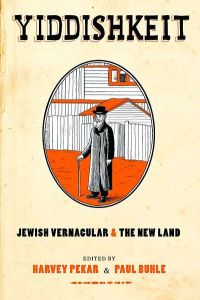Do Jewish comics discriminate…against Jews?
Well, over at Comics Comics, Jeet Heer posed some compelling critique inspired by his attendance of the Toronto Jewish Film Festival last year and its special program on Jews in Comics. He writes,
Here is a new angle on the subject: I think writers have been too quick to assume that the Jewish immigrant community, which was very divided on ethnic and class lines, was monolithic.
[…] Throughout the late 19th and early 20th century, German Jews came into cultural conflict with their East European brethren, who were seen as embarrassingly uncouth and rowdy.
[…] Is it too much to see the tension between German Jews such as Rabbi Wise and Russian Jews at the beginning of the 20th century as a precursor to Wertham’s battles against the unseemly and vulgar comic book industry in the 1940s and 1950s?
How far back do the roots of high-/low-culture go when it comes to Judaism and comics? And was there a divide that laid the foundation for the cry against comics in the 1950s?
Some commenters to Heer suggested that this is gazing too deeply into Judaism and its contribution to comics: “I’m a little sick of the sort of ethno-narcissism of Jews writing about Jews and comics lately.” Still others said the topic is very much alive, especially in light of Bill Willingham’s Fables as a metaphor for Zionism.

